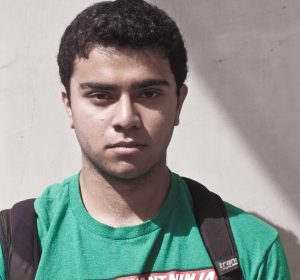Call to action
Cody Owens, a history teacher in training with Nick Bonacorsi, remembers the day vividly.
“I remember waking up for school and my friend called me and told me that there had been an attack on the world trade center,” Owens said, “They kept replaying the clip of the planes crashing into the buildings. They even brought in TVs in every classroom so we could watch what was happening. We were in a state of disbelief.”
As mass hysteria started to spread, he explained, people started to take an extremely aggressive approach towards ending terrorism.
“Everyone in my neighborhood was demanding an immediate call for arms, and a lot of my brother’s friends actually enlisted in the army after 9/11. The event created a war on terror,” Owens said.
“Everyone in my neighborhood was demanding an immediate call for arms, and a lot of my brother’s friends actually enlisted in the army after 9/11. The event created a war on terror,” Owens said.
In recent developments, President Barack Obama has received overwhelming support by the American public for his course of action with the terrorist group ISIS. Americans seem to stand behind any action that will possibly eliminate perceived terrorist threats.
According to Cato Institute, although many Americans greatly fear terrorist attacks, the average American citizen is eight times more likely to be killed in an act of police misconduct rather than by a terrorist. It is also estimated that the U.S. has spent over seven trillion dollars on defense and homeland security since 2001, which is about half of the entire world’s military expenditure.
This post 9/11 fear of terrorism also aroused intense feelings of racism towards the Muslim community.
“There was a lot of racism right after, especially in popular culture,” Owens said. “Head scarves were looked at with suspicion and I heard people around my community making inappropriate remarks about Muslims. Some Muslim store owners had to put up signs in their windows to show that they were not related to Al Qaeda.”
Racial profiling by airport security
This past summer, junior Zarek Peris, and his mother went on a trip to China. By the time they finally left Seattle International Airport after their trip, their composure had been thoroughly tested.
“We had just come off a flight from China,” Peris said. “So naturally, we were the only two brown people there.”

Peris remembers an officer checking the passport of a fellow passenger of Chinese ethnicity. After that, the officer went over to Peris and his mother and checked their passports.
“Officers near baggage claim areas occasionally ask people to show them their passports and ask them some questions to determine their citizenship,” Peris said, “So I was like ‘okay, not a big deal. It is only one check. He’s just doing his job.’”
After that, Peris went over to get one of their bags, and when he came back, he saw another officer checking his mother’s passports.
Both of them felt violated, assuming that the check was because they were of Indian descent, but they did not dwell on the experience for long because they wanted to get home as soon as possible to rest. However, as they were leaving the airport, they were subject to another mandatory check.
“At this point, I didn’t know if it was racism, but it felt kind of like racism because there were so many other passengers on the plane, and only one other person was checked once. We got checked three times. I mean, why were we the only people subject to this level of search?”
“We got checked three times. I mean, why were we the only people subject to this level of search?” Peris said.
It appears that such racism has not yet left our society. Even students in a cultural melting pot like MVHS are still victims of 9/11’s consequences. Junior Ali Zaidi, a student at MVHS who is of Middle Eastern descent, has been randomly selected by airport security every time he has got on a plane in the past 8 years.

“They’ll usually tell me to step to the side, open up my bags and search through all my stuff, and ask me some questions,” Zaidi said. “It usually takes an extra 10-15 minutes before I am allowed through.”
It is undeniable that the events that transpired in less than two hours on a day more than a decade ago gave rise to a surge of racial bigotry that has affected many people.







